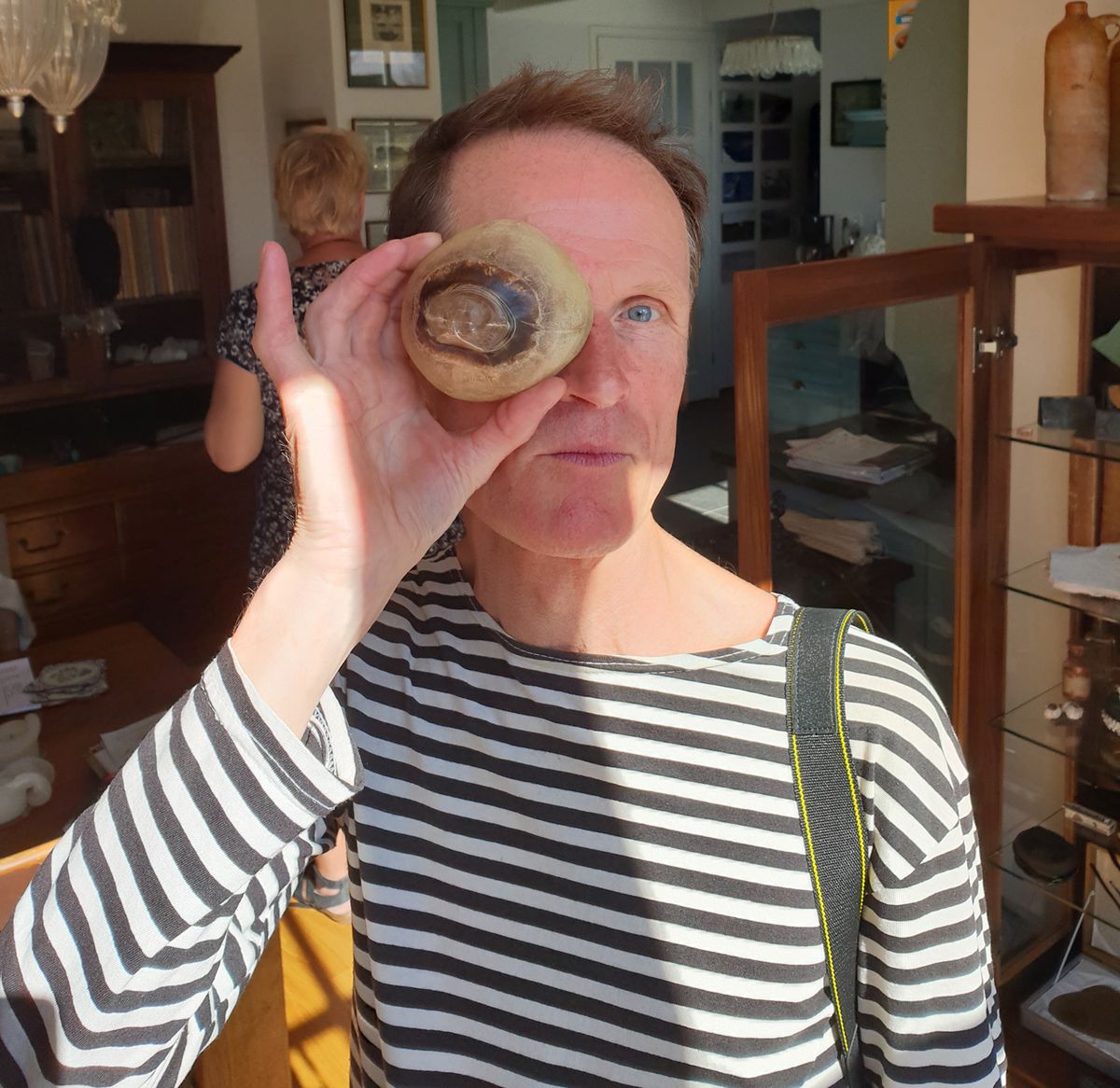If you could live with just one work of art, what would it be?
Under a perspex box in London’s National Gallery stands Dürer’s Saint Jerome in the Wilderness (around 1496). It’s a votive object, an icon, barely bigger than a paperback book. The saint is in the desert, beating his chest with a stone. His enigmatic lion, whose golden paw Jerome has dethorned, looks on. But turn it over and there’s a big surprise: Dürer’s exploding comet, a vision of the big bang, bursting out of its ebony frame. When I first saw it, I nearly tucked it under my coat and walked out with it.
Which cultural experience changed the way you see the world?
Bowie’s Isolar tour (1976). A screen showed Un Chien Andalou [the 1929 film by Luis Buñuel and Salvador Dalí], as Kraftwerk’s Radioactivity (1975) played, then the Thin White Duke walked onstage in Weimar monochrome, caged in fluorescent strip lights, throwing darts in lovers’ eyes. He was Prospero, about to drown his books out of despair. We were together, alone. As I left, I saw Steve Severin and Siouxsie Sioux [of the band Siouxsie and the Banshees] behind me. I was a suburban boy from Southampton when I went in. I was a person from the future when I came out.
Which book most challenged your thinking?
Herman Melville’s Moby-Dick (1851). The whole of the world in the shape of the whale. The whales I really saw in front of me, in the ocean; the whales I see constantly, in my head [Hoare is pictured looking through the eye of a whale]. Grand hooded phantoms, as Melville’s unreliable narrator, Ishmael, saw them, before he jumped into bed with Queequeg.
Which writers or poets do you return to the most?
For the city: T.S. Eliot. For the natural world: Marianne Moore. For despair and joy: Herman Melville.
What music or other audio do you listen to as you work?
Tinnitus, a legacy of my misspent past as a troglodyte in nightclubs, has overridden the aural for me, sadly. And I need silence to write. So now I sit there with only the birds outside my window and the ringing inside my head. Noise annoys (cf. Buzzcocks, 1978). I console myself by imagining the sound of the ocean in a shell.
What are you watching, listening to or following that you would recommend?
Patti Smith singing Hard Rain for Dylan’s Nobel investiture [in 2016]. The distance between her voice and the words and the bejewelled audience is almost Renaissance in its excess. (I also like, heretically, Bryan Ferry’s camp version from 1973.) And in a further counterpoint, another piece of searing poetry: James Baldwin’s acidic address to the Oxford Union, 1965.
What is art for?
As Virginia Woolf said of reading: it’s not a passive act. It’s something you have to do. It’s not separate from what we are. Like the sea where I swim every day, it’s always there, but sometimes not.
• Philip Hoare, Albert and the Whale, Fourth Estate, 304pp, £16.99/$28.95 hb
• Philip Hoare is an English writer specialising in history and biography and is a professor of creative writing at the University of Southhampton @philipwhale


